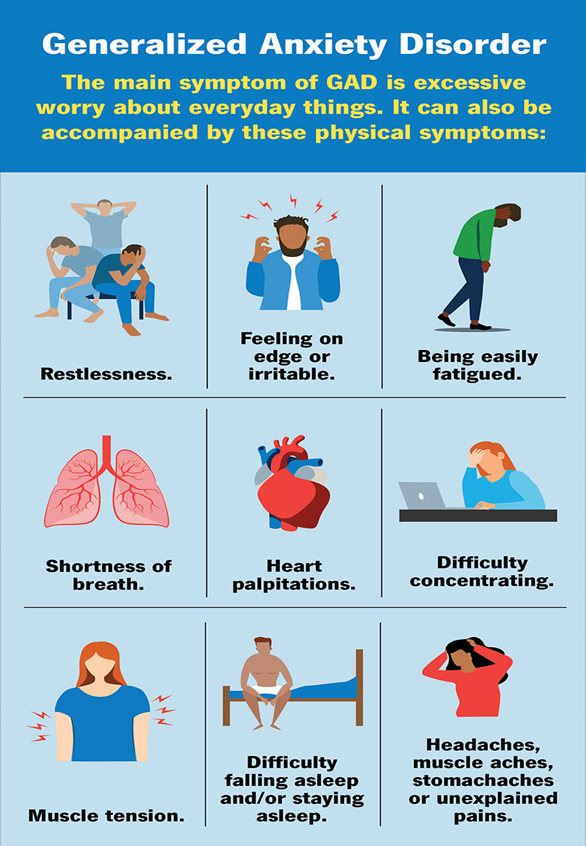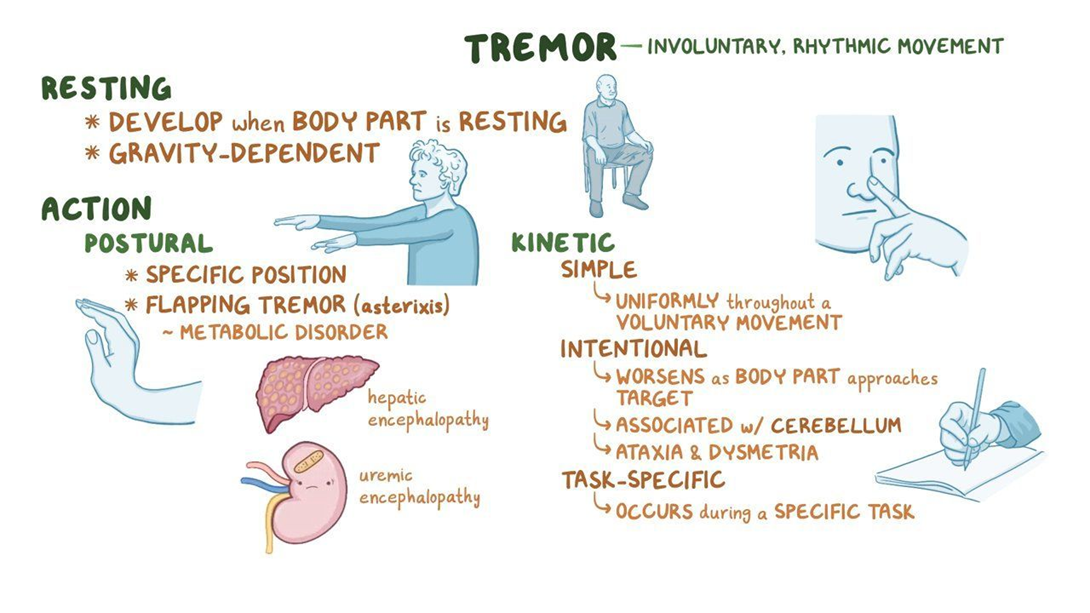A client diagnosed with generalized anxiety disorder (GAD) is started on buspirone. Which statement made by the client indicates teaching has been effective? The client verbalizes that:
Clonazepam is to be used for long-term therapy in conjunction with buspirone.
Clonazepam is to be used short-term until the buspirone takes full effect.
Buspirone should be taken as needed until clonazepam takes full effect.
Tolerance could result with long-term use of buspirone.
The Correct Answer is B
Choice A Reason:
Clonazepam is to be used for long-term therapy in conjunction with buspirone.
This statement is incorrect. Clonazepam, a benzodiazepine, is typically used for short-term relief of anxiety symptoms due to its potential for dependence and tolerance1. Long-term use of benzodiazepines is generally avoided in favor of medications like buspirone, which do not carry the same risks of dependence.
Choice B Reason:
Clonazepam is to be used short-term until the buspirone takes full effect.
This is the correct response. Buspirone takes several weeks to achieve its full therapeutic effect. During this period, clonazepam may be used to manage acute anxiety symptoms. Once buspirone reaches its full effect, clonazepam can be tapered off to avoid long-term use and potential dependence.

Choice C Reason:
Buspirone should be taken as needed until clonazepam takes full effect.
This statement is incorrect. Buspirone is not intended for as-needed use; it must be taken consistently to maintain stable blood levels and achieve its therapeutic effect. Clonazepam, on the other hand, is used for short-term relief and should not be relied upon for long-term management of anxiety.
Choice D Reason:
Tolerance could result with long-term use of buspirone.
This statement is incorrect. Unlike benzodiazepines, buspirone does not typically cause tolerance or dependence with long-term use. It is considered a safer option for chronic management of anxiety disorders.
Nursing Test Bank
Naxlex Comprehensive Predictor Exams
Related Questions
Correct Answer is D
Explanation
Choice A Reason:
Pseudo-Parkinsonian side effects, also known as drug-induced parkinsonism, can occur with the use of antipsychotic medications like haloperidol. These side effects include symptoms such as rigidity, bradykinesia, tremor, and postural instability. However, the description of the client’s neck arched sharply backward is more indicative of an acute dystonic reaction rather than pseudo-Parkinsonian side effects. Pseudo-Parkinsonian symptoms typically develop more gradually and do not present with such dramatic posturing.
Choice B Reason:
While some side effects of haloperidol can be temporary and may disappear after several days, the acute dystonic reaction described in the scenario requires immediate intervention. Acute dystonic reactions are characterized by sudden, severe muscle contractions that can be painful and potentially dangerous if they involve the airway. Therefore, it is crucial to address this reaction promptly rather than waiting for it to resolve on its own.
Choice C Reason:
Increasing the dosage of haloperidol in response to the described symptoms would likely exacerbate the situation. The client’s symptoms are not indicative of worsening psychotic behavior but rather an adverse reaction to the medication. Increasing the dosage could lead to more severe side effects and complications. The appropriate response is to treat the acute dystonic reaction and reassess the medication regimen.
Choice D Reason:
An acute dystonic reaction is a known side effect of antipsychotic medications like haloperidol. It involves sudden, severe muscle contractions, often affecting the neck, face, and back. This reaction can be distressing and requires immediate treatment with anticholinergic medications such as benztropine or diphenhydramine. Prompt intervention can relieve the symptoms and prevent further complications.

Correct Answer is C
Explanation
The correct answer is c.
Choice A Reason:
The statement “I am glad I’m getting out of here. I shouldn’t be here anyway.” indicates a lack of insight into the need for treatment and does not demonstrate readiness for discharge. Clients who are ready for discharge typically acknowledge their condition and the importance of ongoing care. This statement suggests denial or minimization of the issues that led to hospitalization, which can be a barrier to successful discharge and continued recovery1.
Choice B Reason:
The statement “I know I’m ready to go. I’ve got everything under control.” can be misleading. While it may seem positive, it lacks specific details about the client’s discharge plan and follow-up care. Readiness for discharge involves more than just feeling ready; it requires a concrete plan for managing medications, follow-up appointments, and support systems. Without these details, the statement does not fully indicate readiness for discharge.
Choice C Reason:
The statement “I have a list of my medications and have made an appointment with my doctor.” is correct. This statement demonstrates that the client has a clear understanding of their medication regimen and has taken proactive steps to ensure continuity of care after discharge. Having a follow-up appointment scheduled is a critical component of discharge planning, as it helps ensure that the client will continue to receive necessary support and monitoring. This level of preparation indicates that the client is ready for discharge.
Choice D Reason:
The statement “I just can’t get rid of these thoughts about dying.” is a serious concern and indicates that the client is not ready for discharge. Persistent thoughts of dying or suicidal ideation require immediate attention and intervention. Discharging a client with these thoughts would be unsafe and could lead to severe consequences. The client needs further evaluation and treatment to address these thoughts before being considered for discharge.
Whether you are a student looking to ace your exams or a practicing nurse seeking to enhance your expertise , our nursing education contents will empower you with the confidence and competence to make a difference in the lives of patients and become a respected leader in the healthcare field.
Visit Naxlex, invest in your future and unlock endless possibilities with our unparalleled nursing education contents today
Report Wrong Answer on the Current Question
Do you disagree with the answer? If yes, what is your expected answer? Explain.
Kindly be descriptive with the issue you are facing.
